Essay Conclusion Quotes & Sayings
Enjoy reading and share 5 famous quotes about Essay Conclusion with everyone.
Top Essay Conclusion Quotes
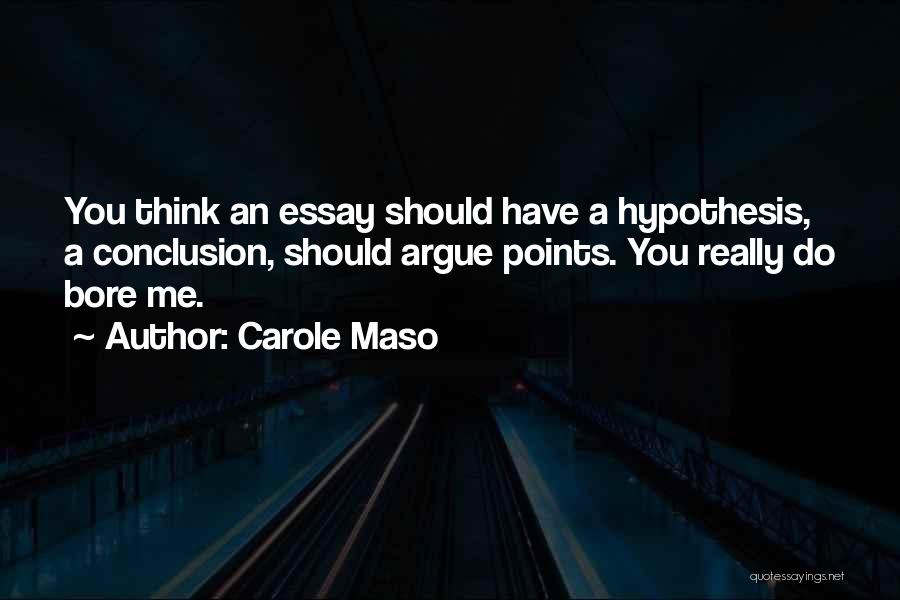
You think an essay should have a hypothesis, a conclusion, should argue points. You really do bore me. — Carole Maso
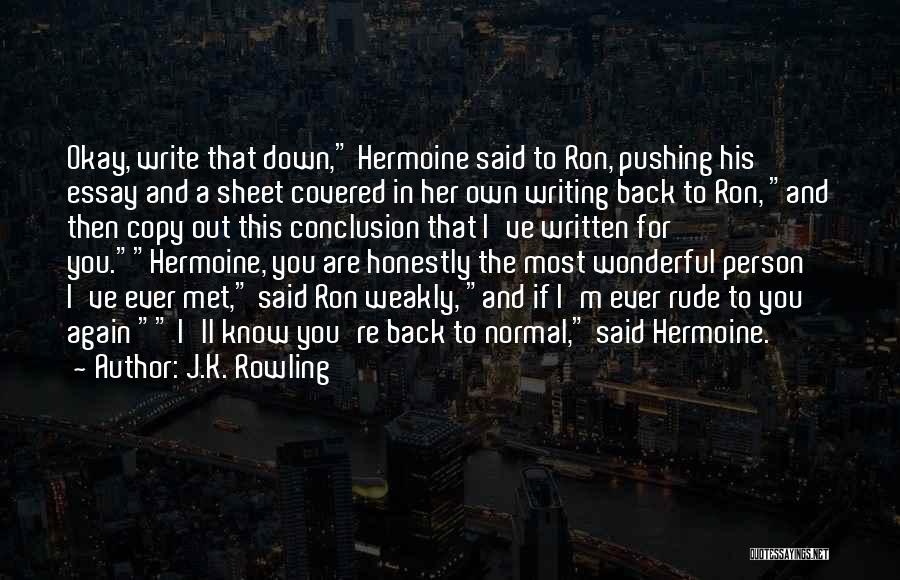
Okay, write that down," Hermoine said to Ron, pushing his essay and a sheet covered in her own writing back to Ron, "and then copy out this conclusion that I've written for you."
"Hermoine, you are honestly the most wonderful person I've ever met," said Ron weakly, "and if I'm ever rude to you again
"
"
I'll know you're back to normal," said Hermoine. — J.K. Rowling
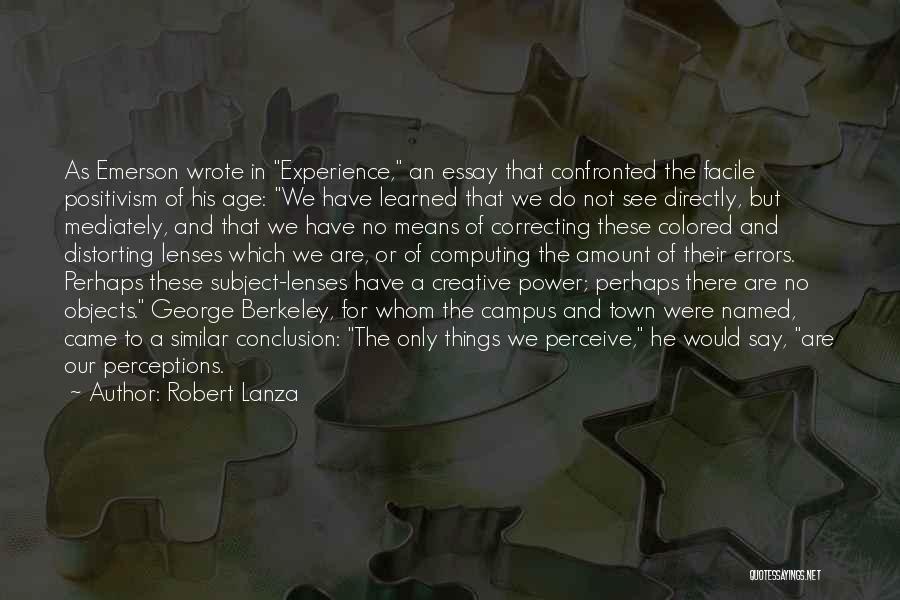
As Emerson wrote in "Experience," an essay that confronted the facile positivism of his age: "We have learned that we do not see directly, but mediately, and that we have no means of correcting these colored and distorting lenses which we are, or of computing the amount of their errors. Perhaps these subject-lenses have a creative power; perhaps there are no objects." George Berkeley, for whom the campus and town were named, came to a similar conclusion: "The only things we perceive," he would say, "are our perceptions. — Robert Lanza
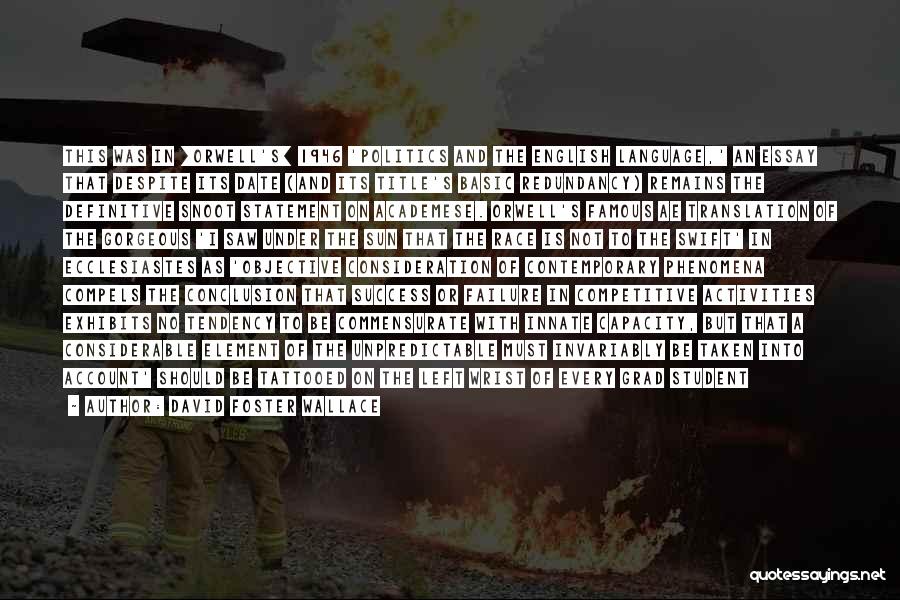
This was in [Orwell's] 1946 'Politics and the English Language,' an essay that despite its date (and its title's basic redundancy) remains the definitive SNOOT statement on Academese. Orwell's famous AE translation of the gorgeous 'I saw under the sun that the race is not to the swift' in Ecclesiastes as 'Objective consideration of contemporary phenomena compels the conclusion that success or failure in competitive activities exhibits no tendency to be commensurate with innate capacity, but that a considerable element of the unpredictable must invariably be taken into account' should be tattooed on the left wrist of every grad student in the anglophone world. — David Foster Wallace
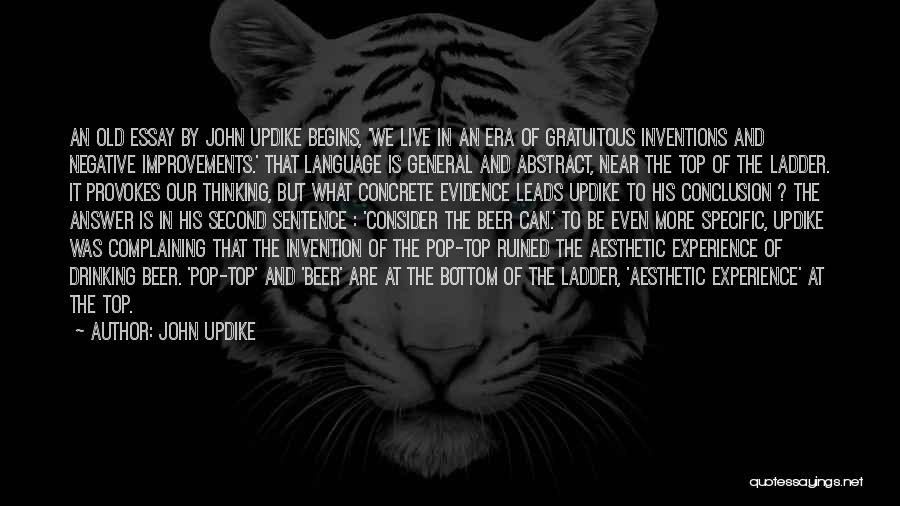
An old essay by John Updike begins, 'We live in an era of gratuitous inventions and negative improvements.' That language is general and abstract, near the top of the ladder. It provokes our thinking, but what concrete evidence leads Updike to his conclusion ? The answer is in his second sentence : 'Consider the beer can.' To be even more specific, Updike was complaining that the invention of the pop-top ruined the aesthetic experience of drinking beer. 'Pop-top' and 'beer' are at the bottom of the ladder, 'aesthetic experience' at the top. — John Updike





